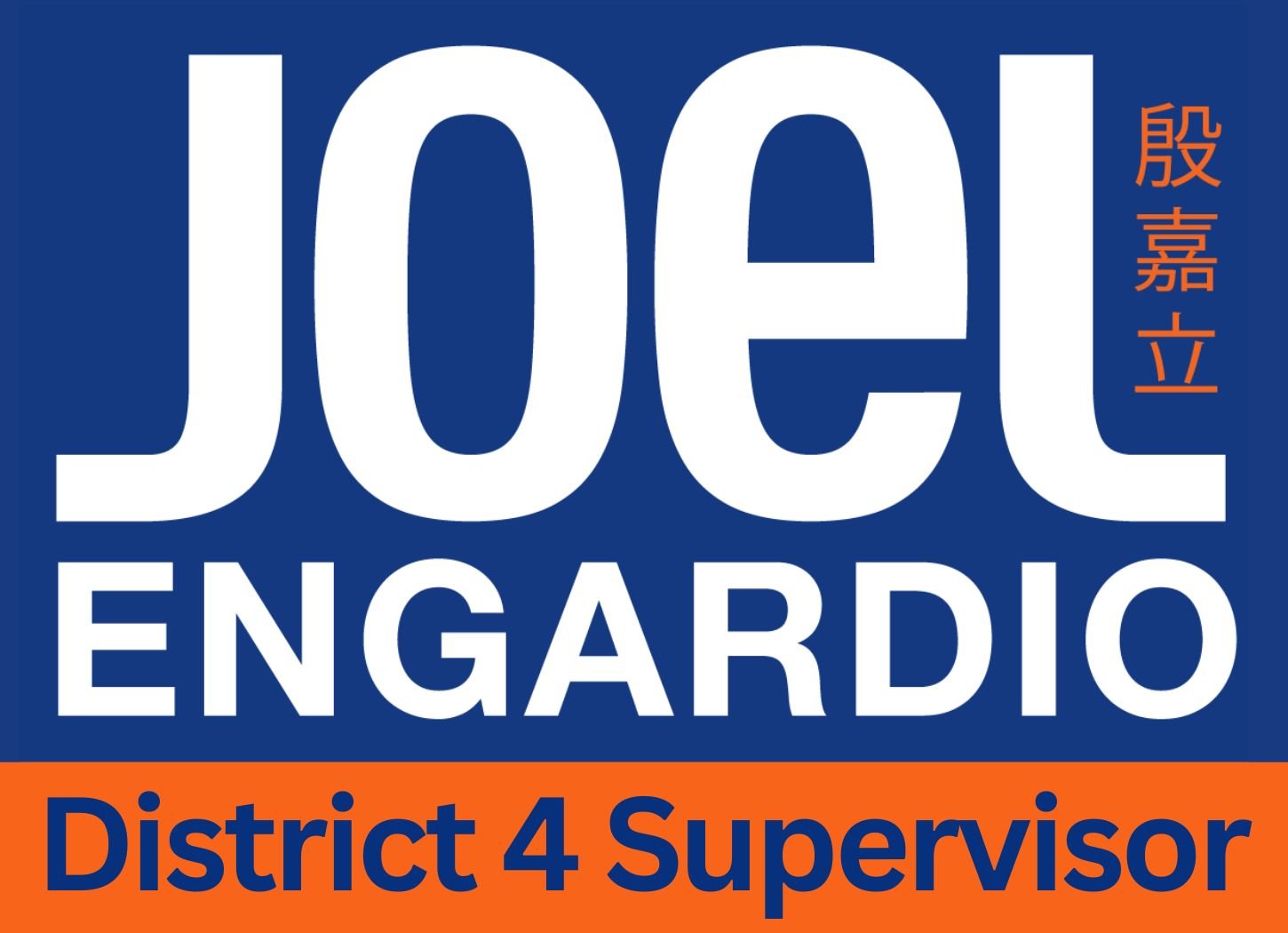$4 Toast That Signals Salvation, Not Apocalypse
By Joel P. Engardio
Supervisor Katy Tang and I decided to share a piece of $4 toast. Yes, the infamous toast that became – along with the Google bus – a symbol of tech gentrification, high rents and the ruin of San Francisco.
We couldn’t resist. It was an inch thick and slathered with warm butter, sugar and cinnamon. We lined up for it in a coffee shop packed with bearded millennials. The barista’s arms were covered in tattoos. An art installation sat out front.
The most interesting observation: We weren’t hanging in the Mission. We were in the Outer Sunset, that foggy Siberia mostly known for extended Asian families living in rows of attached homes built on barren sand dunes.
Yet the trend behind the toast tweeted around the world started at Trouble Coffee on Judah Street and 45th Avenue, close to where Tang grew up and her Mandarin-speaking parents still live.
Urban murals, destination restaurants, art galleries and a food co-op now define the beach-front neighborhood Tang represents as District 4 supervisor.
If trendy cafes are copying Trouble Coffee's fancy toast, how did the Outer Sunset become a trendsetter?
“My office can’t take credit for it,” said Tang, who recently turned 30 and is the youngest member of the Board of Supervisors. “What you see just sprang up and has a life of its own. I love that it’s so organic. People have a more independent attitude out here. They don’t like bureaucracy and government intervention. They are free spirits. It might be something about being by the beach.”
Market forces can also explain the phenomenon. A lack of housing supply in San Francisco’s most popular neighborhoods has pushed rents beyond the reach of most workers without the high pay found in some tech jobs. That has led to a migration of Mission artists to the East Bay, where rents are lower and a long-ignored area can be re-imagined. Some are doing the same by going to San Francisco’s western edge.
“Innovators are snatching up inexpensive spots and infusing new life here,” Tang said. “Anyone thinking of moving to Oakland should come to the Outer Sunset.”
Tang said there is plenty of room. She has identified areas along the Sunset’s transit corridors that could support the construction of 1,000 new housing units – without raising any height limits.
Westside residents have historically been against growth, but Tang said she’s “hearing a tone of change.” She will discuss her ideas for “responsible development” at the Sunset Recreation Center at 6:30 p.m. Wednesday.
Tang’s approach to San Francisco’s housing crisis is very different from her colleagues who are focused on stricter tenant protections without addressing the underlying supply problem.
“For so long we made it difficult to grow neighborhoods. Now we just keep going in circles with sensational eviction stories and legislation against property owners,” Tang said. “I feel bad about evictions, but we need balance because more burdens on property owners will only create a backlash. They’ll just throw their hands up and refuse to rent anymore. That’s why we have to create more supply.”
Tang said she is troubled by City Hall’s volume of reactionary legislation, like last year’s creation of a decadelong ban on converting rentals into condominiums. It was touted as a way to keep tenants in rent-controlled units but had the reverse effect.
There used to be an economic incentive to not evict tenants because a building with a clean eviction history was eligible for the lucrative condo lottery. With that hope now gone, petitions for Ellis Act evictions have increased substantially (32 affecting 130 units were filed in the six months leading up to the condo ban compared to 50 for 211 units during the six months after). Predictably, with nothing to lose by an Ellis eviction, property owners are now cashing out to buyers willing to sell units as tenancies-in-common.
“I worry that we’re ignoring the unintended consequences of all the legislation in the pipeline,” Tang said. “Instead of solving our housing problem, we may end up hurting more tenants in the long run.”
Tang can speak candidly because she looks at her service on the board in terms of years. Unlike some other supervisors, she’s not on an eight-month quest to pass enough populist legislation to win higher office in Sacramento.
“I never expected to be in elective office,” said Tang, who was appointed to complete her predecessor’s term and can serve two terms of her own. “I don’t need to introduce quick-fix legislation five times a week. I’m trying to offer a different type of solution that addresses root causes. San Francisco needs to adapt to changing times and I want to be here to see things through.”

